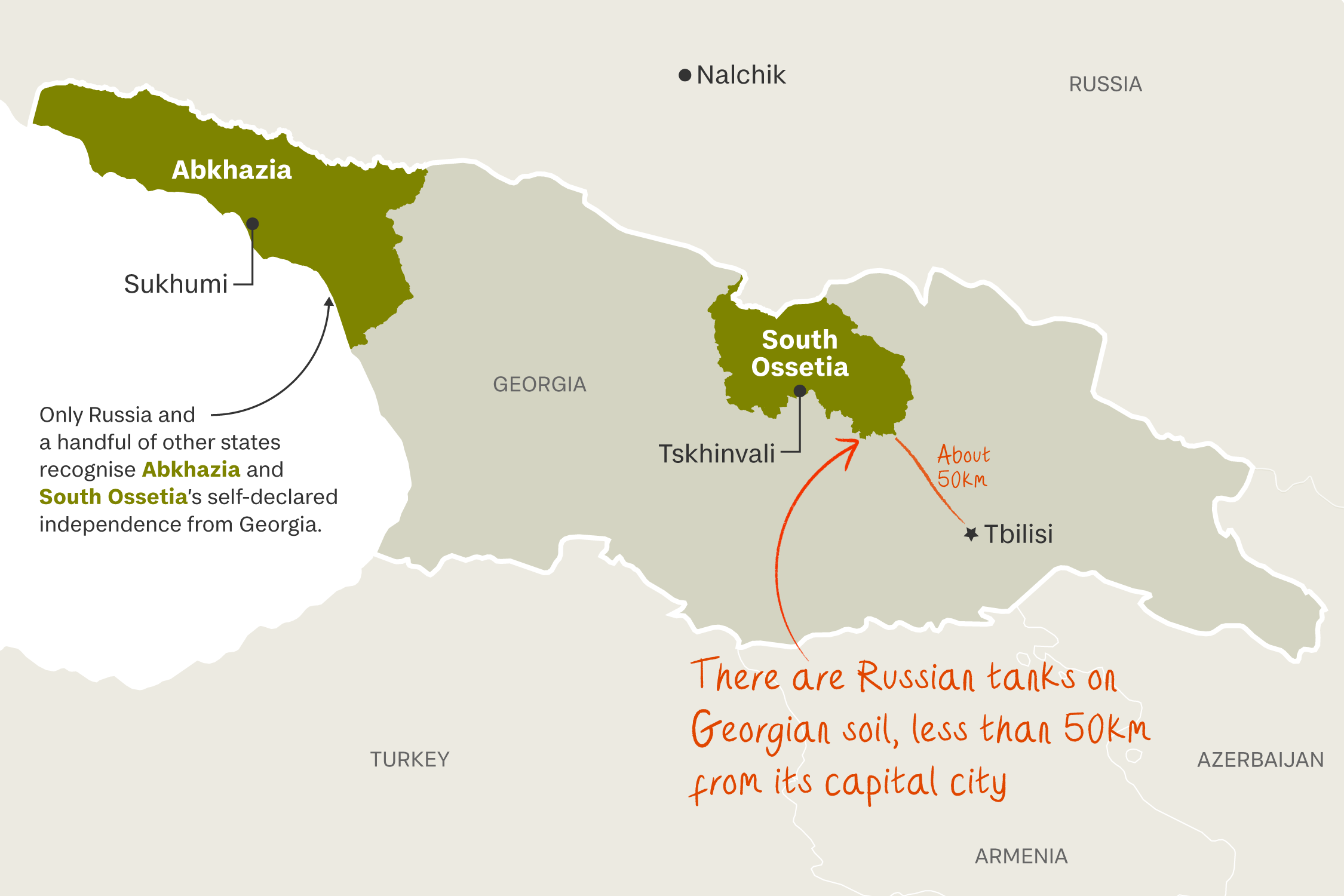
Georgia’s MPs passed a law on “foreign agents” yesterday despite weeks of mass anti-government demonstrations and warnings from European capitals and Washington.
So what? The law’s a gift to Putin.
- Georgia’s government has admitted it will target Western-backed NGOs and media.
- Brussels says it will seriously damage Georgia’s prospects of future EU membership.
- Moscow sees it drawing Georgia back into Russia’s sphere of influence.
Georgia has been a friend to the West in the Black Sea region, a trade gateway between Europe and Asia, and a transit country for Azerbaijan's Caspian Sea gas.
Losing this ally will be a strategic blow to Brussels and the US, which have spent billions supporting the country's development since the 1990s.
Russia's hand in the affair has not been proven, but the anti-Western language and posturing of the Georgian leadership appears to have come straight out of the Kremlin's playbook.
The NGO 'problem'. Critics point to an over-dependency in Georgia on Western-funded NGOs. But in the absence of strong institutions and a fractious opposition, they have done good work holding the government to account.
If they receive more than 20 per cent of funding from abroad, the law will subject them to scrutiny and fines for non-compliance. Crucially it will stigmatise them as “organisations pursuing the interest of a foreign influence”.
Fighting to be European. In a chilling prelude to the law's passage, thugs armed with the addresses of prominent rights activists, apparently acting on the government's behalf, viciously assaulted some and defaced others' homes with obscene graffiti and posters denouncing them as traitors and foreign agents.
These acts have only strengthened the protesters' resolve.
200,000 people, mostly young Georgians, converged on Tbilisi's Europe Square last weekend. That is a big number, especially considering Georgia's total population is 3.7 million, of whom almost 0.5 million live abroad.
80 per cent of Georgians want to be part of Europe. Their president is firmly on their side and has promised to veto the law, but her powers are weak and the governing Georgian Dream Party's majority will override the veto. The protesters now have to try to build a coalition that can challenge the government in elections in the autumn.
A global war conspiracy. Georgian Dream's move to pass the law initially confounded those who assumed the party could comfortably win the October vote. But a conspiracy theory by its founder, Georgia's richest businessman Bidzina Ivanishvili, does much to explain its decision.
- He talks of a "global party of war" that has co-opted Western decision makers, dragged Ukraine into a losing fight with Russia, and is fomenting revolution on the streets of Tbilisi.
- But on Monday Georgia's prime minister, Irakli Kobakhizde. said it was really all about his master's money. Ivanishvili lost part of his fortune to a rogue banker at Credit Suisse, and has since been awarded compensation.
- Kobakhidze said the compensation due had been frozen under pressure from the US, and was a form of blackmail, putting Ivanishvili under de facto sanctions to the tune of $2 billion.
This frank admission that the GD has put Ivanishvili's financial interests ahead of Georgia's European aspirations has only inflamed passions on the street.
An actual war’s effects. The debacle also shows that Russia's battlefield successes in Ukraine may be having unintended consequences elsewhere. Ivanishvili appears to be hedging his bets on Moscow over Washington. A recent tweak to the tax law means offshore funds can now flood in from virtually anywhere, including Russia.
NGOs point to a failure of both the US and EU to see the Georgian storm coming.
What’s more… They say only money can talk now, which may be why the US State Department sent in James O'Brien this week to try to persuade the government to think again. His remit: sanctions coordination.
The EU prepared a strong statement against the new law, but it was vetoed by Hungary.
